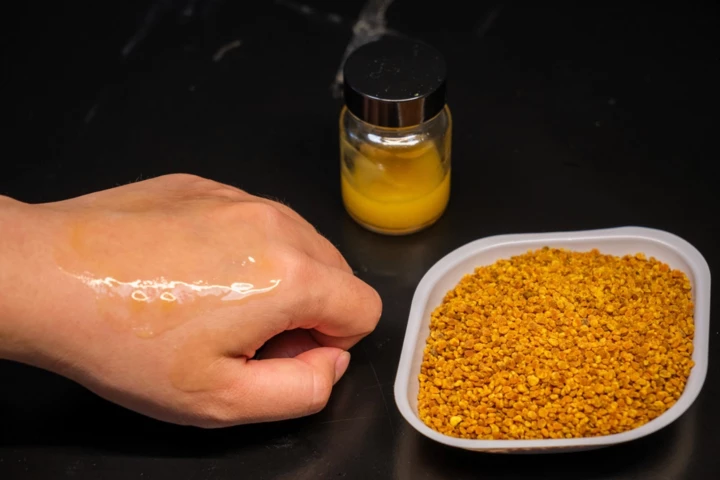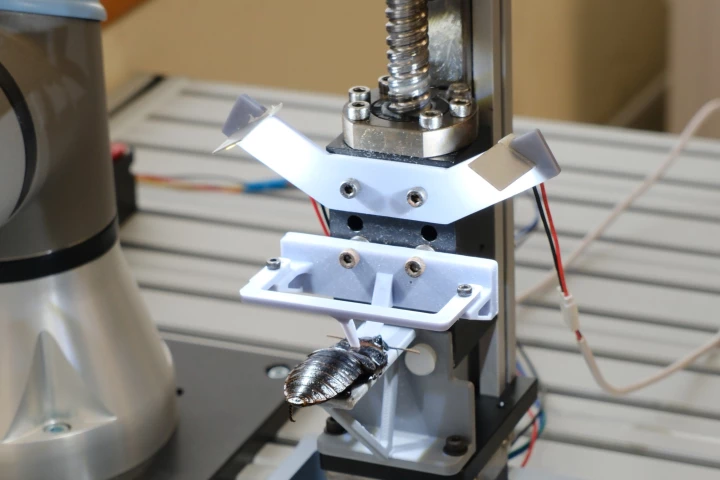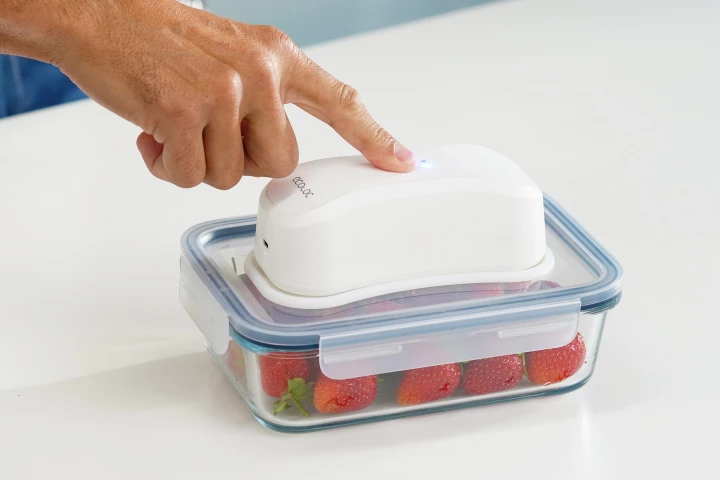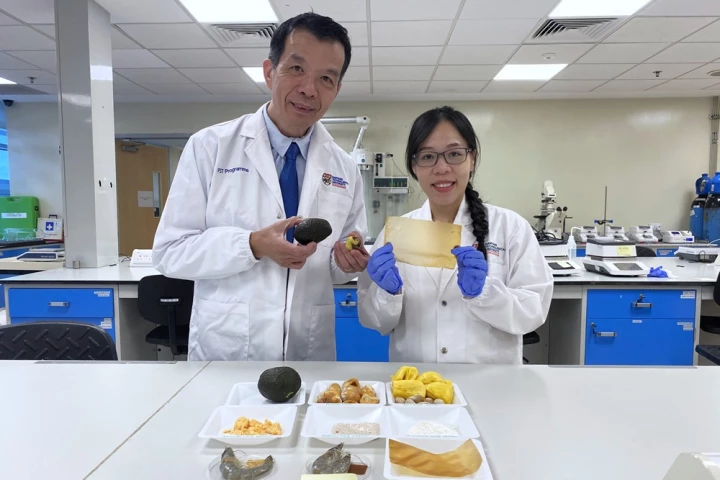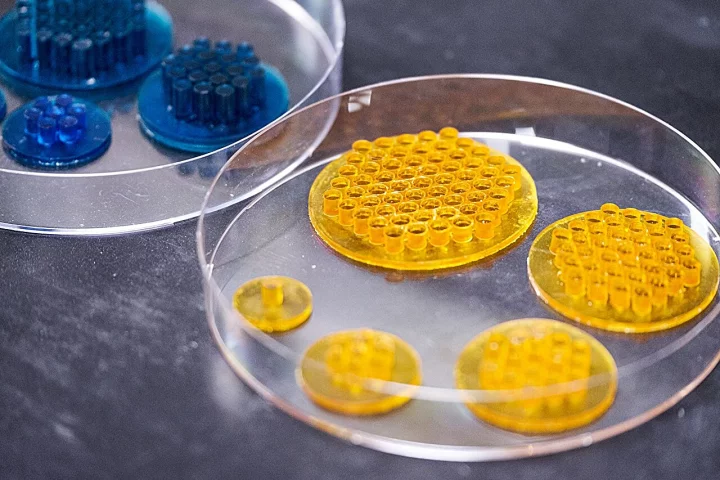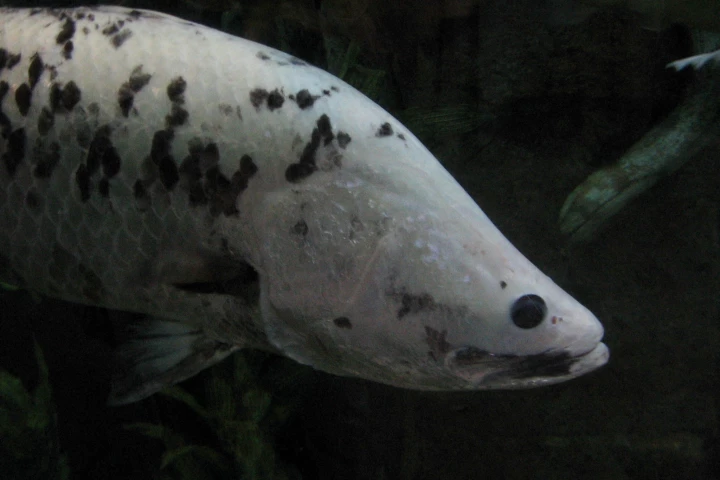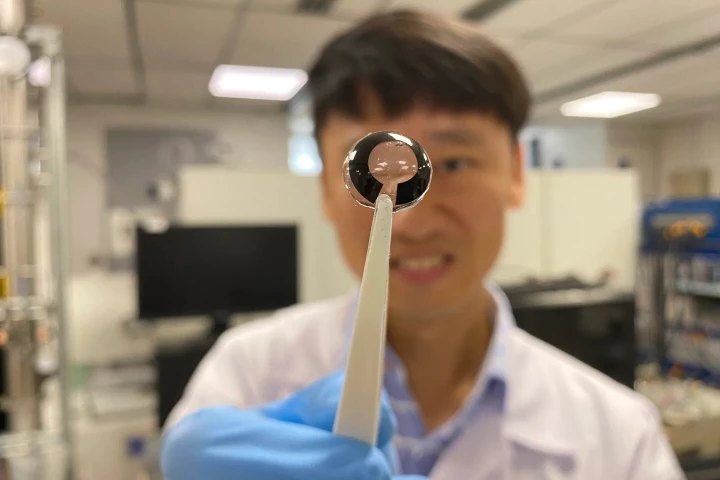Nanyang Technological University
-
Minerals like titanium dioxide are effective sunscreen ingredients, but they can harm coral reefs if used in their non-nanoparticle form. An experimental new sunscreen forgoes the minerals altogether, replacing them with "just-as-effective" pollen.
-
Instead of going to the trouble of building tiny robots from scratch, some scientists are now turning insects into remote-control cyborgs. A new "assembly line" could help, by converting cockroaches into cyborgs far faster than can be done by hand.
-
Ultraviolet light is well-known for its ability to kill germs, including ones that cause food to spoil. And while there doesn't tend to be any food-preserving UV light in our refrigerators, a new consumer device is out to change that.
-
Oyster mushrooms and bits of bamboo sound more at home on a Chinese menu than stuck to the wall, but scientists have used this mix to make aesthetically pleasing tiles with bumps and textures that help regulate temperature much like elephant skin does.
-
It's never a good thing, when a bacterial biofilm forms on the surface of a medical implant. There could soon be a new way of eradicating such films, however, using tiny remote-control liquid-bodied robots.
-
Most food-wrap films just act as a barrier to bacteria, but don't actually kill the microbes. An experimental new film does exactly that, plus it changes color to show when food is spoiled. And what's more, it's made from avocado seeds.
-
Soft materials and stiff materials both have their uses, but the two properties typically aren't seen in one substance. RoboFabric is an exception, then, in that it can be switched back and forth between soft and stiff states.
-
Using very low-dose X-rays to activate compounds that light up and generate cancer-killing free radicals stalled brain tumor growth and doubled survival time, according to a new study. Importantly, healthy cells were left unaffected.
-
Forget radioactive spiders – a new breakthrough could make it easier to get Spider-Man’s wall-crawling powers. Scientists in Singapore have created a strong and reusable adhesive out of a shape-memory polymer, triggered by temperature changes.
-
Fish farming may be getting much more eco-friendly, courtesy of soybean processing wastewater. Microbes in the liquid have been used to produce proteins that could replace the fishmeal which is currently fed to farmed fish.
-
A common, usually harmless bacteria has been found to have a significant role in causing stomach cancer. Researchers identified the bacteria’s mechanism of action, opening the door to developing therapeutics that prevent it triggering cancer growth.
-
Although great strides are being made in the field of "smart" contact lenses, one challenge remains – how do you safely and discreetly power the things? Singaporean scientists may have the answer, in the form of a tear-fluid-charged ultra-thin battery.
Load More
